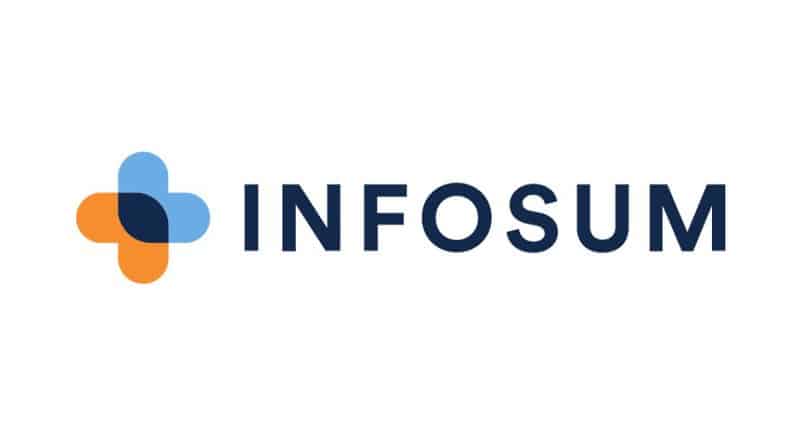The Cannes Lions International Festival of Creativity has wrapped up for 2023, with the event having brought together those that work in creative communications and advertising from every corner of the planet.
Mediaweek has been on location in the South of France, and spoke to some of the most influential people in both Australian and global media. Today is Lauren Wetzel, COO at InfoSum.
With so much going on in the data realm, Wetzel says that the elevator pitch for InfoSum is all about keeping that data private and secure.
“First-party data has proven to be incredibly effective to drive insights and understanding of your customer. Better advertising, better feedback loop to R&D, it makes your company better.
“We as an industry have gotten really careless with how that data is passed around, just to drive that effective advertising. You should never put that at risk, you should have control over your own infrastructure that protects the data – that still allows you to work with partners to have a better understanding of your data, where you have gaps in your understanding, and how to fill those gaps. You want to understand your audience, however, you never want to risk leakage or misuse of that data. With this technology, you are in control.”
One of the major pieces of regulation that works towards this goal is GDPR – or General Data Protection Regulation.
“It’s about ensuring that there are transparency controls in place, so that you, as a consumer always know what is happening to data,” says Wetzel. “It’s ensuring that there’s responsibility and onus on the controller of the data.
“How do you hold a company accountable for the fact that once upon a time you agreed to hand your data over, but you had an understanding of exactly what was happening to your data? It’s about more awareness, it’s about clarifying what a company is able to do with that data, and then it’s enforcing it when it’s not being followed.”
Also working towards this future are data clean rooms – secure, neutral environments where multiple data sources can be shared with complete data privacy – no personal information or IP identifiers involved.
Wetzel says that the response from the market has been positive, with the main hurdle in InfoSum’s eyes being getting everyone on board at once.
“Everyone’s interested in having meetings on it, I think those who are really taking protection of their first-party data seriously are moving the fastest. That’s a lot of retailers, broadcasters, and publishers who have more access to first-party data. That’s companies who have been in the headlines, who have risked their data in the past and are on the recovery tour.
“The biggest challenge we face is that this is a collaboration. It takes two to tango, so the biggest challenge we have is aligning everyone’s timelines at the same time.”

Clean rooms are on the rise, however, with Wetzel saying that there has been a lot of progress made even within the last 12 months.
“In comparison to last year, everyone was running around saying they needed a data clean room – and they really didn’t know what it was. What I’m seeing now is better examples out in the market of how it can drive value and better examples of innovation.”
Of course, no discussion about the big topics of today would be complete without mentioning AI.
“I just think this industry loves to just harp on about the next thing,” says Wetzel. “AI can be incredibly important – I heard this from Lou Paskalis, who’s ex-Bank of America, he’s been on a bunch of panels this week – he was talking about how people need to stop over-debating whether it’s right or wrong, and just start preparing for the fact that it’s a reality that AI is here.”
As progress marches on, the old tech is phased out in favour of the new. When it comes to the cookieless future, Wetzel points out that “the cookie was never destined to do what it was able to do for that long, that was never sustainable.”
“I joke sometimes that talking about cookies in today’s world of advertising is the equivalent of talking at a climate conference about plastic straws. It’s not going to be the number one driver, it’s been known to be fairly irrelevant for a while, and you have all of these major technology companies who have acknowledged that. Many innovative companies have moved away from it long before, in Australia, specifically, it’s like 50%.
“It’s been coming for a while. It was never meant to be this way of connecting across audiences so that partners can understand and then pass that off. I think it’s been a forcing function for everyone to get their first-party data shipped together.”
When considering how Australia is placed in the global landscape, Wetzel says that Down Under is a “well-positioned” market.
“I think they’re well-positioned because of a few different things. Because of privacy and regulation coming, everyone has been a little bit more proactive in terms of the cookies going away, and asking ‘What do we do about that?’
“It’s a little bit of a later market to data collaboration infrastructure, but I think that’s a good thing. Now we ask ‘how do you approach that market? How do you make it really compelling?’”
Looking ahead, Wetzel says that no matter how times and tech change, her work with InfoSum will continue to focus on one thing: getting the best results for consumers.
“I’m excited about innovation and advertising, I’m passionate. Every day I wake up thinking, ‘we have to do better by consumers’ – and we’re not a B2C company, but my job is arming businesses with the technology to do better by their consumers. So I feel that connection.
“Consumers don’t think about all GDPR all the time, they don’t think about accept cookies, don’t accept cookies, they don’t think all the time about that quick email exchange for 10% off. But we have to do better, we have to have better controls, and greater transparency. That’s what I’m passionate about.”
See Also: News Corp Australia becomes first Australian publisher to partner with InfoSum
–
Top Image: InfoSum’s Lauren Wetzel
